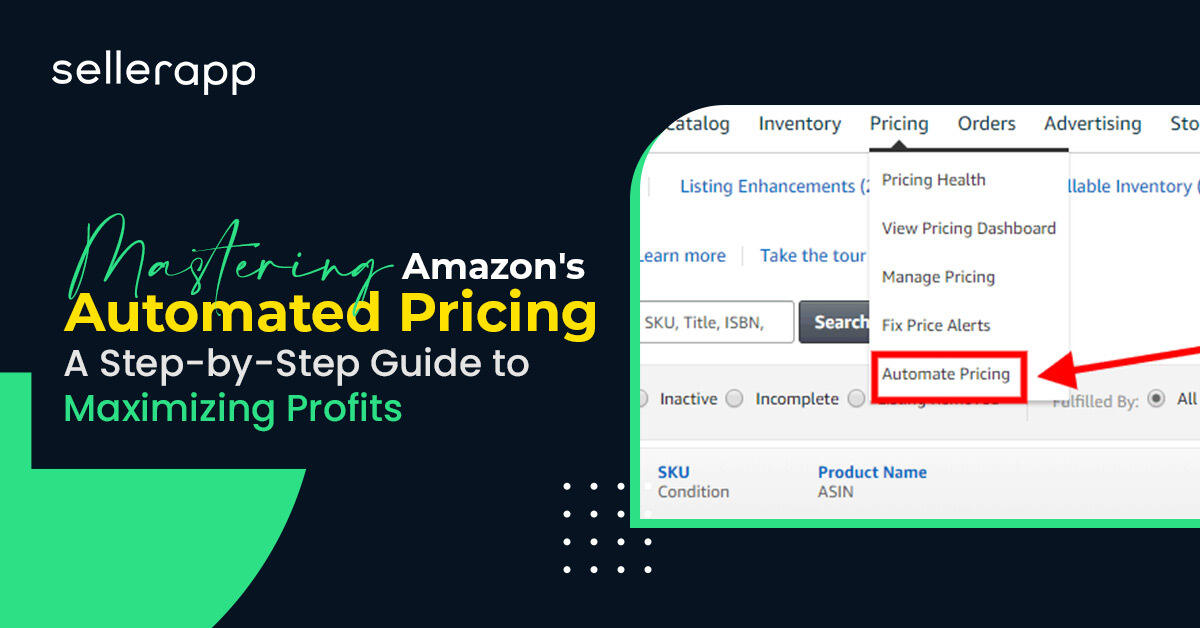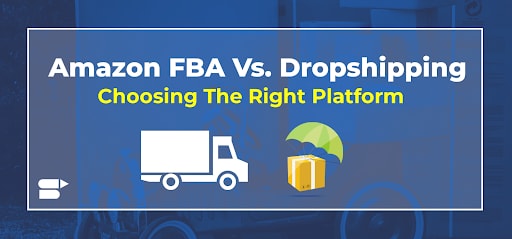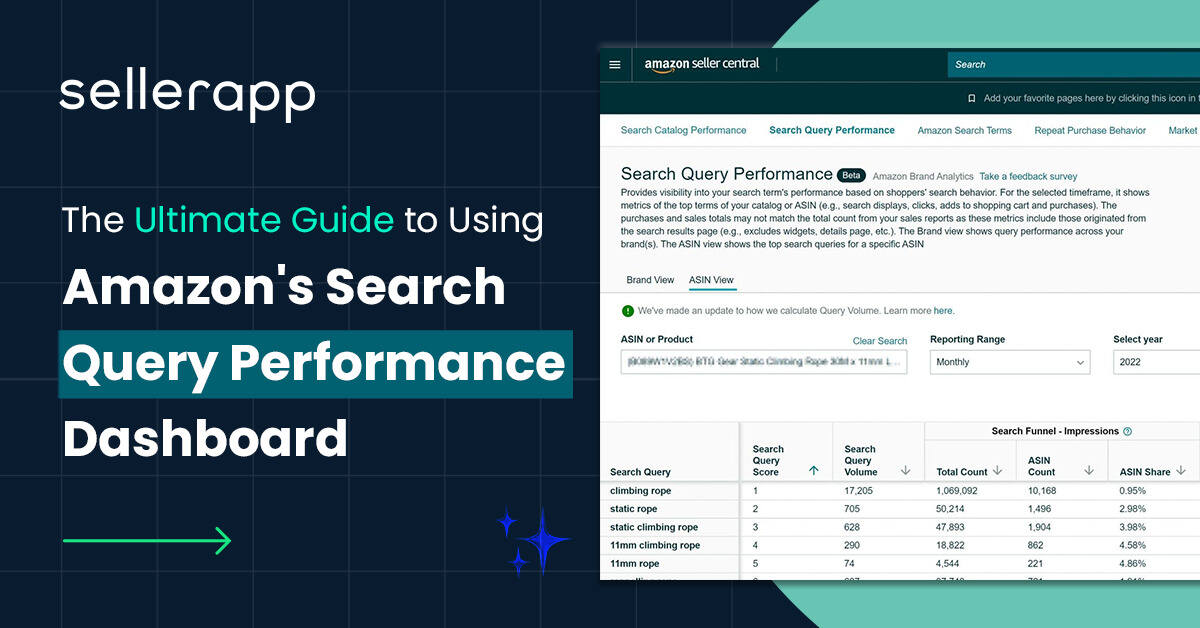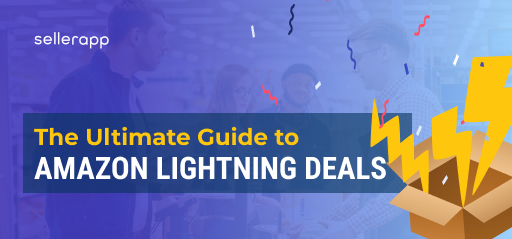Amazon Competitors Giving the Ecommerce Giant a Run for its Money

While Amazon continues to lead the e-commerce marketplace, the several Amazon competitors are nothing to scoff at. They are more than thriving relying on their unique offers. In spite of Amazon’s dominance the e commerce landscape is currently more dynamic and filled with more potential than ever.
Sure, within two decades Amazon became a trillion-dollar conglomerate in 2018, but does that make it absolutely bulletproof? The short answer is No.
In this article, we’ll dig deep into how each of these Amazon competitors meets the seller’s unique requirements, taps into their need for control, and offers cost-effectiveness.
As an ambitious seller, if you’re considering creating an omnichannel business presence across different web platforms, here’s the list of options you need to consider.
Quick Guide:
- Top 10 Amazon Competitors
- Final Thoughts
Top 10 Amazon Competitors
Walmart— the retail giant cornering other Amazon competitors
Firstly, Walmart has always been the heart and soul of American retail. After all, 75% of Americans live somewhere within 10 miles of a Walmart store. Moreover, the retail giant has an incredibly large ecommerce presence, making it one of the biggest Amazon competitors.
While Amazon occupies almost 40% of all online retail e-commerce sales in the US, Walmart stands in the #2 position just after it. Walmart’s revenue reached nearly USD 648 billion worldwide by the start of 2024 and showed a 6% growth compared to last year’s.

What sets Walmart apart from Amazon?
- Walmart thrives by leveraging its retail dominance while Amazon plays its fulfillment cards. Walmart has already flipped the script turning their stores into warehouses, which decreased shipping expenses.
- Walmart’s referral fees range from 6-20% while Amazon’s referral fee ranges from 8-15% plus added closing fees.
- Walmart’s quality control limits listings to a certain level to avoid an overcrowded market. It allows sellers to gain better visibility and successful sales which makes it among Amazon major competitors.
- Similar to Amazon’s FBA, Walmart has a WFS with competitive rates, which is both reliable for sellers and profitable for sellers.
- WFS offers 2-day shipping within the US which acts as a tough competition for Amazon.
Who should choose Walmart over Amazon?
Established brands looking for a less competitive environment, lower selling fees, and better brand protection should go for Walmart. No requirement to spend a hefty amount on paid advertising; sellers can easily extend their reach to distant rural areas and find their target audience.
While Amazon’s Professional Seller Plan costs $39.99/month, sellers at Walmart are free from additional subscription charges.
Costco— the boon for bulk buying among Amazon competitors
Costco will be a major Amazon competitor in 2024 as it reports total sales of $249.6 billion, showing a 5% increase compared to the previous year. Its business model features an excellent delivery chain and minimal markup of up to 15% above cost.
Costco delivers perishable items within the same day with a minimum spend of $35. While for nonperishable delivery over $75, it charges no extra delivery. The delivery is indeed fast but its online presence is still at its growing stage. Costco like Target Plus, operates on a membership-only model where the customers pay an annual membership fee of $60 or $120 to get access.

What sets Costco apart from Amazon?
- Costco Direct provides additional discounts for bulk purchases. So sellers get a bulk pricing advantage out of selling at Costco.
- Sellers can opt for same-day delivery using Costco logistics without managing shipping by themselves. The in-house shipping solution makes it an equally competent Amazon alternative.
Who should choose Costco over Amazon?
Sellers offering perishable objects with an estimated delivery limit should choose Costco as well as bulk suppliers. This includes sellers offering perishable items requiring one-day delivery which is what makes Costco stand out among all other competitors of Amazon company.
Alibaba— the biggest Amazon competitor among b2b space
In the Far East, Jack Ma founded Alibaba in 1999, in China to create a web-based B2B ecosystem. Since then Alibaba Group has transformed into an e-commerce powerhouse serving customers worldwide including 190+ countries it has established itself as one of the biggest Amazon business competitors.
It was initially founded as a platform to open up China’s massive wholesale market to the entire world but it eventually morphed into the biggest b2b marketplace. Alibaba collected a revenue of 130.35 billion U.S. dollars in the fiscal year of 2024 making it a major Amazon competitor.

What sets Alibaba apart from Amazon?
- Alibaba primarily caters to businesses and facilitates bulk supply to wholesale buyers— leading to a higher volume of sales when compared to the B2C model of Amazon.
- Since it is a B2B platform, Alibaba’s suppliers offer customization options for their products letting wholesale buyers have the utmost control over product specifications. This is a special feature that sellers won’t find on Amazon.
- On Alibaba, one can find a unique Trade Assurance program that acts as a guarantee of timely delivery and quality maintenance. The platform goes above and beyond to establish transparency between buyers and sellers, mitigating possible risks of inter-border transactions.
Who should choose Alibaba over Amazon?
Alibaba is a goldmine for dropshippers and third-party businesses. It is ideal for businesses willing to sell items sourced from Asian wholesalers. It’s an excellent channel to find manufacturers from China, Vietnam, or Turkey and directly negotiate on cost for bulk orders— especially useful for newly launched stores aiming to minimize expenses.
Read more : How to Sell on Amazon From Alibaba
AliExpress— fulfilling your dropshipping dream
After their massive success with the B2B platform, the ambitious Chinese conglomerate Alibaba Group definitely not planning to rest on its laurels.
AliExpress, the 3rd party online retail platform born out of Alibaba group is a direct Amazon competitor. Launched in 2010, it initially catered to customers within the borders of China; it then spread across 200 countries achieving a global status.
What sets it apart from any other competitors of Amazon is its competitive pricing and easy returns. Aliexpress is known for being the best place for bargain hunters also boasting an extensive collection of fashion and utility items. This easy customer-centric approach is paving the way for Alibaba to expand its global footprint with 150 million active buyers all across.

What sets AliExpress apart from Amazon?
- Aliexpress allows unrestricted selling on their platform; this means a requirement for documentation is loosely set. On the contrary, Amazon has some set regulations enforcing the submission of invoices.
- AliExpress uses China’s massive manufacturing framework and shipping, which is the ace up their sleeve. The low shipping fees may come at the cost of delayed fulfillment of orders. Since AliExpress focuses on budget-conscious shoppers, they tend to accept the delay as long as it is economical. This is how it wins over the price-sensitive market.
- AliExpress is a go-to platform for dropshippers. The products on wholesale at AliExpress can be easily linked with a dropshipper’s Shopify store catalog and the economical pricing of the bulk orders makes it an ideal scope for easy dropshipping businesses. Amazon for dropshipping, has laid some rigid policies.
Who should choose AliExpress over Amazon?
Frugal customers with no rush often prefer this platform. Dropshippers selling on Shopify or other platforms find it extremely useful as they find inexpensive products directly from manufacturers.
Shopify— an ecosystem far from Amazon competitors
Shopify leads the industry when it comes to empowering business owners with full control over their online stores. Slightly deviating from the third-party e-commerce marketplace, Shopify offers a refreshing SaaS model for sellers who would like to have better control over their platform create their own website, and make an impact via branding.
The backstory of its origin also evolves from the founder’s frustration with existing e-commerce platforms back then. Founded in 2006, in Canada, by team efforts of Tobias Lütke, Daniel Weinand, and Scott Lake, today, it hosts over 5.6 million storefronts scattered across 175 countries.
Although Shopify’s numbers are not very significant in comparison with Amazon (which touched a trillion in market cap back in 2018), it accounts for 10% of e-commerce transactions in the US.
Shopify’s revenue growth is a true testament to relentlessness. From a valuation of $4.6 bn in 2021 to $7.06B in 2023 with a 26.1% spurt, Shopify’s momentum kept going higher which led to a quarterly revenue growth of 20.7%. It boasts $7.413 billion in revenue in 2024 with a solid 23.2% leap. With a Gross Merchandise Volume (GMV) of 60.9 billion U.S. dollars, it only aims onward and upwards.
As Amazon inclines towards showcasing more listings, emerging businesses or unpopular sellers are finding it harder to make themselves visible. This has led Shopify to gain more popularity in recent years, so much so that every 28 seconds an emerging business makes its first sale on Shopify. Famous pop culture brands such as Supreme, Skims, Kylie Cosmetics, Netflix, Gymshark, etc made their online presence live via Shopify.

What sets Shopify apart from Amazon?
- While Shopify offers a platform, Amazon is a marketplace; so as a seller sets up a store on Shopify, other brands won’t have a chance to directly overshadow its presence.
- Extensive customization options with over 100 free and purchasable templates backing the idea of the seller’s online presence.
- Good news for sellers! While Amazon restricts the full disclosure of customer data, Shopify merchants have complete access to customer data to create direct marketing campaigns.
- As an Amazon competitor, Shopify offers a comprehensive collection of built-in tools to enhance the visibility of products, including abandoned cart recovery, customizable checkouts, integrated blogging capabilities, and an extensive app ecosystem. Whereas Amazon provides limited tools pivoting sellers towards paid advertisements.
- Compared to Shopify, Amazon brings fewer tools for performance tracking, and traffic sources for making data-driven decisions.
- Sellers get unlimited product listing opportunities irrespective of the plan they’ve opted for (Basic, Shopify for small teams, or Advanced plan), which is significant in comparison to the monthly 40 listing options that Amazon provides for Individual Seller Accounts.
Who should choose Shopify over Amazon?
Shopify is ideal for Small to Medium-Sized Enterprises (SMEs), or even established entities that crave autonomy, better control over platform aesthetics, and better access to data. Sellers with basic plans can get access to unlimited listings so it is suitable for sellers with a wide range of product offerings.
eBay— the web auction space among Amazon competitors
eBay and Amazon are true contemporaries. Founded in 1995 by Pierre Omidyar, it began as AuctionWeb connecting audiences globally and creating an ecosystem of eCommerce auction space. Currently, sellers can offer auctions or fixed pricing to the offerings, while buyers can negotiate and purchase their products at competitive rates.
Although the growth trajectory of eBay has been relatively slower than Amazon, it still managed to make a growth of 17% from the recorded returns in 2020. 1.7 billion+ listings available on eBay offer a diverse collection of products across several categories, from collector’s items to electronics and fashion as well.
For buyers, it’s almost like taking a tour of a garage sale where one gets pre-owned items at their best price— the same sale that is accessible to 180 + countries worldwide and a click away.
However, with a projected revenue of approximately $2.576B in 2024, eBay continues to be one of Amazon’s toughest rivals.
When it comes to services, eBay has a fixed-price listing option for sellers giving them the freedom to sell without conducting an auction for it. Sellers can set their pricing accordingly and opt for eBay’s Global Shipping Program (available for US citizens) to deliver all across.

What sets eBay apart from Amazon?
- It is the auction model that separates eBay from other selling platforms. This not only adds to the cost-effectiveness of the products but customers are often chasing the thrill of winning the auction.
- eBay has a strong buyer protection policy along with seamless payment gateways, and customized recommendations.
- This is the ultimate market for used or refurbished items, whereas on Amazon shoppers typically expect brand new items.
- eBay charges a Final Value Fee of 10% which may come off as high at face value, but there is no closing fee or additional charges involved here. Hence, we can call it quite straightforward and transparent. In comparison, Amazon charges a closing fee that varies according to the product category of type leaving buyers in ambiguity. Amazon’s referral fees are between 8% and 15% upon which when closing fees are added, it shoots up to several times higher than that of eBay. Here’s eBay fee calculator in case sellers want a clearer picture while considering eBay.
- eBay sellers get 250 free listings per month whereas Amazon has no such offers going on.
- Sellers can opt for eBay to get away from a super competitive market. Of course, one can choose to advertise using sponsored listing but the space is not as cutthroat as it is in Amazon.
Who should choose eBay over Amazon?
eBay is befitting for emerging or anonymous sellers, and auctioneers. Sellers finding simplified pricing structures should choose eBay and for buyers looking for cost-effective options, it is ideal. There is no restriction on selling pre-loved items so there is a huge possibility to stumble upon some rare finds here. Sellers and buyers can directly communicate to settle for comfortable pricing and
Target— the Amazon competitor requiting loyalty
The rewards program plus Target’s own credit card (REDcard) makes it even more appealing to US customers creating massive loyalty. It has always been a strong contender to Amazon and now via Target Plus it is aiming to take over the retail e-commerce landscape.
Although at its nascent stage, Target Plus holds #8 in the retail eCommerce sales share among other Amazon competitors. So it is just not Target’s stellar reputation but the loyalty programs that keep its customers coming back.
Amazingly, Target’s eCommerce vertical has experienced exponential growth from $6.6 billion in 2019 to $22 billion+ in 2022, painting a clear picture of the potential it holds to make its online footprint as prominent as its brick-and-mortar establishment. The last recorded revenue of Target was recorded at $107.41 billion in 2023.

What sets Target apart from Amazon?
- Target Plus accepts sellers on an invite-only model— this prioritizes inclusivity, quality, and trust upholding the overall reputation of the brand. While it might not be good news for anonymous sellers for selected third-party retailers that are accepted under Target Plus they get to relish lesser competition.
- Target Plus offers a simplified fee structure without undisclosed charges which is often noticed in Amazon.
- Loyalty programs offered as a part of Target Circle are missing among Amazon’s services which gives it an edge over even other Amazon competitors.
- The convenient omnichannel presence of Target allows brands to offer in-store pickups, and doorstep delivery with easy returns, while Amazon is limited to its online presence.
It’s precisely because Target Plus prioritizes premium product quality, that even Target return pallets offer resellers a unique opportunity to access a mix of returns, excess inventory, and undamaged items at a fraction of the cost, making them an appealing option for businesses aiming to expand their product offerings. Read more on Target Return Pallets here.
Who should choose Target Plus over Amazon?
Target is perfect for established or regional sellers. Being an invite-only space Target Plus has set the highest standards when it comes to product quality, brand reputation, and customer service. Target Plus is best suited for sellers who place themselves as quality providers and diverge from bulk volume sales and aggressive marketing.
| Here’s a classic trope— “rivals unite against a common enemy”. In June 2024, the e-commerce industry witnessed Target teaming up with Shopify to strengthen its position against Amazon and Amazon competitors. This strategic collaboration will empower the retail giant to leverage Shopify’s entrepreneurial base to bring a few selected Shopify merchants’ products to their store catalog. Win-win for growing Shopify brands to reach new heights and become omnipresent across the web and Target stores. |
Bestbuy— the Amazon competitor for all things electronics
BestBuy is among the list of Amazon competitors that particularly pick on the opportunities to create a tech-focused community. Just like Costco is known for groceries and Temu for its trendy fashion-forward offerings at minimal pricing, BestBuy leverages its already established (1966) brand reputation for electronics.
In 2022 the recorded revenue of BestBuy was at $46 bn. Recently Bestbuy has released their revised subscription model where buyers are offered discounted pricing, round-the-clock tech support, and a warranty plan of up to 2 years. It’s called Totaltech and it’s priced at $199.99/year.

What sets Best Buy apart from Amazon?
- Gathers niche audience increasing a seller’s chances of gaining visibility.
- As a seller one gets to bask in the reputation already created by the brand— gaining from the brand’s prominent customer relations, quality, and reliability which potentially leads to higher conversion rates when compared to that of Amazon. Customers are often concerned about counterfeit items on Amazon despite its rigid listing documentation.
- Best Buy is less likely to list its in-house items or anonymous brands or even attempt to overtake third-party sellers. Hence sellers are more likely to incline towards it.
- Sellers planning to have an omnichannel presence and integrate Buy Online, Pickup In-Store (BOPIS) and same-day delivery options will present them with an opportunity to enhance the distribution system. It is especially beneficial for sellers with local inventory due to the reduced delivery time, and shipping costs.
Who should choose Best Buy over Amazon?
Best Buy is typically for established electronics sellers trying to be more accessible and aiming for an omnichannel presence. Amazon and its competitors do offer electronic goods but what makes Best Buy more appealing to people is the support and pick-up options available to them. Due to better product protection, there are fewer chances for product counterfeiting so buyers can rely on its authenticity.
Etsy— Amazon competitor for all things artisanal
Although Etsy is an Amazon competitor, the marketplace is specifically dedicated to selling handmade goods from artisans themselves. Etsy reported a revenue of approximately $2.6 billion in 2023 purely driven by the population’s appreciation of handicrafts.
Etsy generated $1.7 billion+ in 2020 as revenue which kept on increasing till it reached $2.3 billion in 2021 which led to another slow-paced growth to $2.6 billion in 2023. From 2020 to 2023, Etsy’s annual CAGR was recorded at 25%.

What sets Etsy apart from Amazon?
- Etsy’s audience is mostly comprised of niche markets; this may lead to higher conversion rates in the presence of negligible direct competitors setting Etsy apart from Amazon and its competitors.
- For sellers to showcase their specialized products, a quick setup like on Etsy, with a Facebook login is essential to capitalize on seasonal trends quickly and easily.
- Etsy charges a listing fee of $0.20 per item plus a 3.5% commission on sales, which is comparatively way less than Amazon’s.
- Etsy’s customization options are vivid. The storefront design offers more control compared to Amazon’s. Moreover, Etsy offers more marketing tools to generate discount codes encouraging repeat purchases.
Who should choose Etsy over Amazon?
Small store owners selling handmade goods look no further than Etsy! It is a perfect platform for buyers inclined towards artisanal quality over mass-produced items. The products are available on Etsy stress quality and individuality.
Temu— the penny pincher’s playground
Temu, a rapidly growing global marketplace, is a subsidiary of PDD Holdings.Temu started with a GMV of USD 290 million in 2022 and it increased to USD 12.26 billion in 2023.
It is the parent company of Chinese e-commerce giant Pinduoduo. It aims to grab the price-sensitive customer base by offering economical daily use products in various categories such as home goods, kitchen appliances, electronics, and fashion.

What sets Temu apart from Amazon?
- While keeping the pricepoint low via promotional campaigns and free shipping offers, Temu is offering quicker delivery— almost bridging the gap that a major Amazon competitor Aliexpress left unattended.
- As a seller, you’ll be able to directly communicate with your customers hence no requirement of paying a middleman.
- Temu focuses on emerging markets, targeting only the trending items. They have aggressive marketing strategies including localized promotions and pricing, targeting regions where the influence of Amazon isn’t strong enough. Hence perfect for sellers trying to create an omnichannel presence and get the best out of both.
- Temu’s discounts and promotional offers outperform Amazon’s deals. This is an excellent strategy for anonymous sellers to create a noticeable presence. It provides added shopping credits for bulk orders.
- Temu, unlike Amazon, offers an unbelievable 90-day return window. There is free return shipping, opening up opportunities for new customers to try out products without hesitance. On the other hand, although Amazon talks about their 30-day return policy, there are plenty of exceptions to this rule.
Who should choose Temu over Amazon?
Temu is perfect for directly communicating with wholesalers, customizing products, and getting products at competitive bulk pricing at a mere price of delay tolerance. Its seller price is lower than that of Amazon’s which is why it’s a low-risk entry point for new sellers to take over the price-sensitive market.
Final Thoughts
The Amazon marketplace is oversaturated with aspiring anonymous sellers (maybe you’re one of them). Due to the competition, sellers often fail to reach their target customers on Amazon and deviate to alternatives.
These Amazon competitors offer the opportunity to make their offerings visible. While Target, Costco, Walmart, and Best Buy house all the established brands, eBay and Spotify create a space for small yet ambitious sellers of different types to thrive.
But letting go of the opportunity to reach 310 million active Amazon members just to achieve saturation does not seem like a good bargain.
That’s exactly where we come in.
We, SellerApp make your presence prominent among the oversaturation. SellerApp’s AI-powered Ad optimization tool will help you climb up the Amazon search results, and a dedicated Mixed Media marketing strategy will set you up for success across multiple other platforms (social media to search engines) for you to have a well-planned omnichannel presence.
Book a consultation to understand the true potential of your business. It’s Free!
Additional Readings:
How To Sell On Walmart For Beginners
Amazon vs. Shopify: Which eCommerce Platform is Right For Your Business
Launch a Wildly Profitable Ecommerce Business
Etsy Affiliate Program: How to Promote Etsy Products as an Affiliate
Multi Brand Strategy To Help You Systematically Expand Your Brand Reach











alenaroman
November 26, 2024Excellent comparison of Amazon’s competitors! Exploring alternatives can definitely help sellers grow their businesses beyond Amazon.
John
November 26, 2024Great insights on Amazon’s competitors! It’s crucial for sellers to explore other platforms like Walmart and eBay to diversify the business.
Noah Logan
January 22, 2025It’s great to see how TikTok Shop is prioritizing seller support with fulfillment options. This guide really highlights its potential for growth.
Ashley Alexander
January 27, 2025TikTok Shop fulfillment feels a lot less overwhelming after reading this guide! The logistics tips are practical and easy to implement.